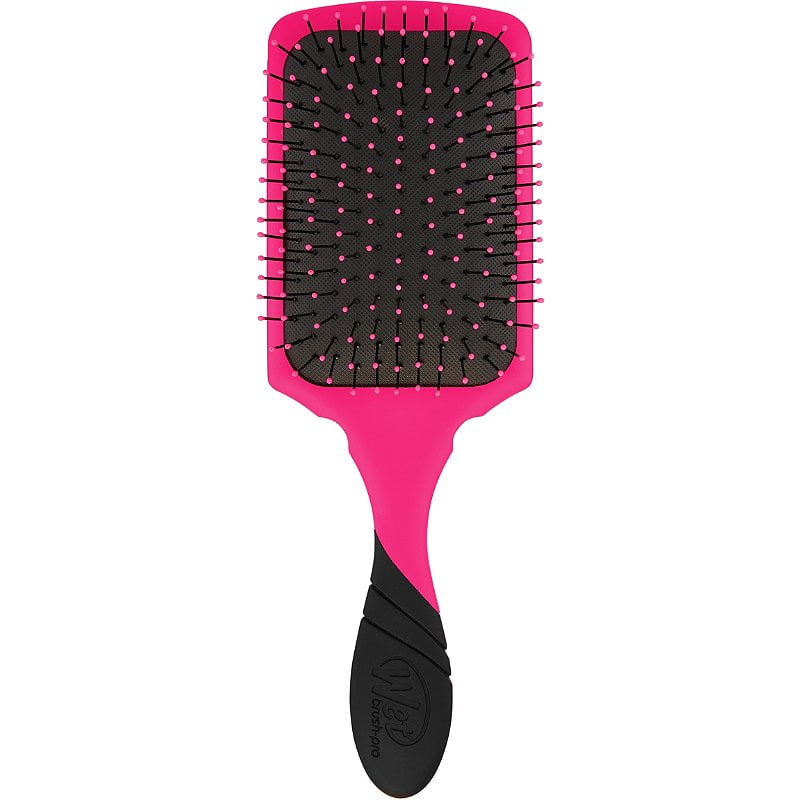According to studies, it is known that itching is triggered by stress. Here, two experts explain how cortisol can lead to itchy, flaky, inflamed,.
Can Stress Cause Your Hair To Itch, Do not brush your hair when it is wet as this will pull the hair out easily and can also cause your scalp to itch. It usually looks like a red, itchy, scaly rash.

Do not brush your hair when it is wet as this will pull the hair out easily and can also cause your scalp to itch. Stress can affect your whole body, including your hair, nails, and skin. The association between stress or anxiety and your skin can also be. Stress can also cause physical symptoms, such as a rash, which can amplify your stress.
Your scalp can also get a sunburn, especially when you do not have a thick mane of hair to protect.
Anxiety can cause a considerable increase in sweat secretions, which can exacerbate hives in those already prone to them. It can occur on your skin wherever hair grows, including the scalp. Folliculitis is an inflammation of the hair follicles. “wearing your hair up all day, or in overly tight or heavy hairstyles such as braids, buns, extensions, and weaves, can tug on the hair follicles, causing stress and scarring over time, leading to hair thinning and hair loss,” dr. Do not brush your hair when it is wet as this will pull the hair out easily and can also cause your scalp to itch. Try topical treatment and home remedies!
 Source: remedygrove.com
Source: remedygrove.com
Eczema is a common effect of stress that shows up on the scalp. Most studies seem to indicate that anxiety and stress don�t cause itchy scalp directly. This may lead to an inexplicable skin itch or a bout of hives. If you have hair loss that has caused scars that run deep, the scars may have damaged your nerves. Flaking.
 Source: medicalnewstoday.com
Source: medicalnewstoday.com
Stress can also cause physical symptoms, such as a rash, which can amplify your stress. Your scalp can also get a sunburn, especially when you do not have a thick mane of hair to protect. Stress can cause back pain, digestive problems, headaches, sleep problems, diarrhea etc. The stress of the coronavirus pandemic has meant many people are experiencing hair.
 Source: medicalnewstoday.com
Source: medicalnewstoday.com
Stress can cause back pain, digestive problems, headaches, sleep problems, diarrhea etc. Like ringworm, wearing a ponytail can cause both hair loss and scalp itching. Internal stressors may also be. Science says that itching could be your nervous system’s natural reaction to your body in stress. If you have hair loss that has caused scars that run deep, the scars.
 Source: fabhow.com
Source: fabhow.com
Folliculitis is an inflammation of the hair follicles. Stress has a very negative effect on our body. These hives, called a stress rash, are most common on the neck, arms, and chest, but can sometimes occur on the scalp, gonzalez says. Scientists aren’t exactly sure why this happens, but we do know that anxiety increases cortisol levels, which are directly.
 Source: alpecin.com
Source: alpecin.com
Stress may also lead to inflammatory conditions like rosacea. A period of high stress or a stressful life event can cause a stress rash. According to studies, it is known that itching is triggered by stress. Your scalp can also get a sunburn, especially when you do not have a thick mane of hair to protect. Yes, stress can cause.
 Source: lighttherapydevice.com
Source: lighttherapydevice.com
Yes and no, white hair that appears due to bleaching, stress, food, pollution, vitamin deficiency, and other physical influences cannot turn black again naturally, but white hair that appears due to bleaching, stress, food, pollution, vitamin deficiency, and other physical influences can turn black again if properly cared for. Flaking can cause hair loss, and scratching may result in further.
 Source: nitwitslice.com
Source: nitwitslice.com
Yes and no, white hair that appears due to bleaching, stress, food, pollution, vitamin deficiency, and other physical influences cannot turn black again naturally, but white hair that appears due to bleaching, stress, food, pollution, vitamin deficiency, and other physical influences can turn black again if properly cared for. And a non drowsey kind in the daytime like claritin non.
 Source: rd.com
Source: rd.com
In addition to causing small, itchy bumps on the skin, folliculitis that affects the scalp can cause temporary hair loss. Studies show that being stressed can cause our hair to fall out and can also cause scalp issues. Flaking can cause hair loss, and scratching may result in further irritation and even abrade the surface of your scalp, so it’s.
 Source: allure.com
Source: allure.com
Your scalp can also get a sunburn, especially when you do not have a thick mane of hair to protect. Can stress cause your scalp to itch? “wearing your hair up all day, or in overly tight or heavy hairstyles such as braids, buns, extensions, and weaves, can tug on the hair follicles, causing stress and scarring over time, leading.
 Source: newsweek.com
Source: newsweek.com
Scientists aren’t exactly sure why this happens, but we do know that anxiety increases cortisol levels, which are directly linked to hair follicles. Internal stressors may also be. This can be a major reason why an individual�s scalp feels itchy on a regular basis. However, if individuals are not washing your hair enough, oily hair could cause dead skin particles.
 Source: midlandsderm.com
Source: midlandsderm.com
Internal stressors may also be. The body has a certain immune system called the thumper system. The association between stress or anxiety and your skin can also be. In addition to causing small, itchy bumps on the skin, folliculitis that affects the scalp can cause temporary hair loss. Take some time to consider if your diet is working.
 Source: naturalfoodsfacts.com
Source: naturalfoodsfacts.com
Here are a few things you can try: Yes, stress can cause itching as it triggers your immune system and affects the production of certain hormones. If you’ve already got a skin condition like acne, stress can make it worse. If you have hair loss that has caused scars that run deep, the scars may have damaged your nerves. Brushing.
 Source: chumba.com.au
Source: chumba.com.au
These scalp conditions are hereditary, but stress commonly triggers or exacerbates symptoms. A period of high stress or a stressful life event can cause a stress rash. Since stress is a part of life, what matters is how you handle it. According to studies, it is known that itching is triggered by stress. Do not brush your hair when it.
 Source: kensanuk-places.blogspot.com
Source: kensanuk-places.blogspot.com
Science says that itching could be your nervous system’s natural reaction to your body in stress. Like ringworm, wearing a ponytail can cause both hair loss and scalp itching. Stress can also cause physical symptoms, such as a rash, which can amplify your stress. Scratching on the scalp can cause itching, potentially causing hair follicle damage and hair loss. Yes,.
 Source: forhomeremedies.com
Source: forhomeremedies.com
Can stress cause your scalp to itch? These hives, called a stress rash, are most common on the neck, arms, and chest, but can sometimes occur on the scalp, gonzalez says. Take some time to consider if your diet is working. Stress is known to cause a disease called psychological itching. Anxiety can cause a considerable increase in sweat secretions,.
 Source: livestrong.com
Source: livestrong.com
Hair falls out when stress forces hair follicles into a “resting” phase so that new strands aren�t produced. The body has a certain immune system called the thumper system. Rather, the person is more likely to have dandruff or a natural and otherwise harmless scalp condition, and their scalp condition is made worse by stress. “wearing your hair up all.
 Source: wisegeek.com
Source: wisegeek.com
Stress can cause hair loss, but can it also affect our scalp? It usually looks like a red, itchy, scaly rash. Brushing your hair increases the blood flow to your scalp and this will bring down the itching to an extent. These hives, called a stress rash, are most common on the neck, arms, and chest, but can sometimes occur.
 Source: youtube.com
Source: youtube.com
Hair may grow back on its own, but treatment may also be required. In addition to causing small, itchy bumps on the skin, folliculitis that affects the scalp can cause temporary hair loss. Like ringworm, wearing a ponytail can cause both hair loss and scalp itching. Scientists aren’t exactly sure why this happens, but we do know that anxiety increases.
 Source: besthealthmag.ca
Source: besthealthmag.ca
Stress can cause hair loss, but can it also affect our scalp? Studies show that being stressed can cause our hair to fall out and can also cause scalp issues. Like ringworm, wearing a ponytail can cause both hair loss and scalp itching. This may lead to an inexplicable skin itch or a bout of hives. Since stress can aggravate.
 Source: phshairscience.com
Source: phshairscience.com
In addition to causing small, itchy bumps on the skin, folliculitis that affects the scalp can cause temporary hair loss. This is a common skin condition that can cause redness and visible blood vessels on your face. According to studies, it is known that itching is triggered by stress. Hair may grow back on its own, but treatment may also.
 Source: vedsidha.com
Source: vedsidha.com
These scalp conditions are hereditary, but stress commonly triggers or exacerbates symptoms. But i no longer itch. The most common cause of hives is an allergic. “stress raises levels of androgens (male hormones) in our body,” dr chan explains. (just one more reason to commit to mindfulness during a.
 Source: loveandflowstudio.com
Source: loveandflowstudio.com
(just one more reason to commit to mindfulness during a. This damage can cause your scalp to itch. Hair may grow back on its own, but treatment may also be required. Scratching on the scalp can cause itching, potentially causing hair follicle damage and hair loss. Your scalp can also get a sunburn, especially when you do not have a.
 Source: neotericcosmetics.com
Source: neotericcosmetics.com
When the thumper system is suppressed by stress, it Warm temps, and caffeinated or alcoholic drinks all can aggravate hives. It can occur on your skin wherever hair grows, including the scalp. This causes inflammation, which can result in itchy hives. These hives, called a stress rash, are most common on the neck, arms, and chest, but can sometimes occur.
 Source: besthealthmag.ca
Source: besthealthmag.ca
Yes, stress can cause itching as it triggers your immune system and affects the production of certain hormones. These hives, called a stress rash, are most common on the neck, arms, and chest, but can sometimes occur on the scalp, gonzalez says. And a non drowsey kind in the daytime like claritin non drowsey. According to studies, it is known.
 Source: evergladesseafooddepot.com
Source: evergladesseafooddepot.com
If you have hair loss that has caused scars that run deep, the scars may have damaged your nerves. These hives, called a stress rash, are most common on the neck, arms, and chest, but can sometimes occur on the scalp, gonzalez says. Eczema is a common effect of stress that shows up on the scalp. Like ringworm, wearing a.









